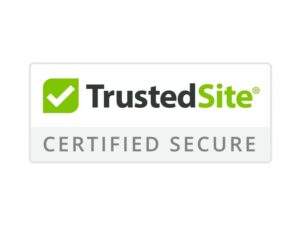Frequently Asked Questions
Below are some of the most frequently asked questions regarding our services to small business owners.
Q: What are the costs of Factoring?
A: You will be surprised to learn how affordable Factoring has become. In fact, a 30 day fee rate for Factoring is about the same as if your customer paid you with a credit card. So if you can afford to accept credit cards, you can also afford Factoring.
Q: Do you work with companies that can finance my inventory?
A: Yes we do, we work with many Asset-Based Lenders that provide financing for accounts, inventory and equipment through revolving lines of credit and we work with lenders that only finance inventory.
Q: What if I have a brand new business and banks will not lend to me?
A: It is true you will have a hard time obtaining a bank loan if you have little or no credit history. For brand new startups, we can provide microloans and for those providing goods or services on a B2B basis, Factoring is a very viable option.
Q: Can you provide Construction Factoring for sub-contractors?
A: Yes and we are experts in this area of commercial finance and we can provide sub-contractors with needed working capital and advances on their invoices when the general contractor working on the job is creditworthy.
Q: Do you purchase Seller Financed Mortgage Notes?
A: Yes we do, so does our private network of investors. We purchase both Seller Financed Notes and Seller “Carried Back” Business Notes though we only buy Performing Notes.
Q: What do I need to do before you can purchase my invoices?
A: The work/goods/services you provided must have been completed, delivered and accepted; and your customer must be creditworthy.
Q: Can my business qualify for medical receivables factoring if I have a history of credit problems such as bankruptcy, IRS liens or judgments?
A: Absolutely! We focus on your customers that you’ll be invoicing, not you as an individual.
Q: What happens if my customer/client does not pay?
A: As Non-Recourse Factors, SECA Funding Company’s private network investors assume the risk of your customer not being financially able to pay for the services provided. However, they do not assume the risk of non-payment due to disputes regarding quality or timeliness of goods or services.
Q: What happens if I lose my lawsuit?
A: If you lose your case, you owe nothing. All of our settlement funding products are non-recourse, meaning that our investors do not collect any repayment on losses.
Q: How long is the Legal Funding process?
A: Typically, you should receive your Lawsuit Cash Advance within 24 to 48 business hours after your application has been approved.
Q: How do I repay my Lawsuit Cash Advance?
A: We are paid when the case reaches a conclusion. Your attorney will distribute to our investors and us what we are due.
Q: What if I have bad credit, can I still receive Lawsuit Funding?
A: Not a problem! Legal Funding is not a loan and is not dependent on your credit score – so if you have bad credit, you may still be eligible for a fast Lawsuit Cash Advance.
Q: Do you offer any other commercial financing options other than factoring services?
A: Yes, SECA Funding Company offers a range of other commercial financing options including Standard Term Loans to Asset-Based Lending, Credit Card Factoring, Purchase Order Financing, Inventory Financing, Working Capital Loans and much more…
Q: When Did Factoring Start?
A: Factoring is one of the world’s oldest forms of commercial financing going back thousands of years, used even in ancient biblical times.
Q: How can I benefit from an Inheritance Advance?
A: The Inheritance Cash Advance is an exchange between the heir and SECA Funding Company and our investors where they buy your inheritance in exchange for cash.
You should consider a Inheritance Cash Advance if you have become frustrated by the probate process and want your inheritance money now.
With an Inheritance Cash Advance you wont have to wait the usual probate process of 9 months to 3 or more years. You will have access to your future cash now.
Its your money to use anyway you may decide!
Q: If the Executor is an heir also can they apply for an Inheritance Cash Advance?
A: Yes, any heir can apply for a Inheritance Cash Advance.
Q: Why were Structured Settlements created?
A: Structured Settlements came about in 1982 A.D. when the United States Congress passed The Periodic Payment Settlement Act of 1982 A.D. ( Public Law 97-473). The act enables injury victims to obtain customized Structured Cash Payments Plans through insurance annuities that assure them guaranteed, tax-free income over time.
Q: Can Structured Settlement Annuities be sold?
A: Yes! Factoring companies, which also buy lottery winnings, casino jackpots and other annuity-based payouts make offers to buy Settlement Annuities at deeply discounted rates while paying individuals a lump sum, these lump sums are fully taxable. Settlement cash-outs require court approval. If the cash-out is in the “best interest” of the injured party, the court usually approves the sale.
Q: What is an inheritance advance?
A: An inheritance advance is a type of financial transaction where a person receives a portion of their expected inheritance before the assets are distributed through the traditional probate process.
Q: Who is eligible for an inheritance advance?
A: Any person who is named as a beneficiary in a will or trust may be eligible for an inheritance advance.
Q: How much money can someone receive through an inheritance advance?
A: The amount of money a person can receive through an inheritance advance varies and is dependent on the value of their expected inheritance.
Q: What are the benefits of getting an inheritance advance?
A: The main benefit of getting an inheritance advance is receiving immediate access to a portion of your inheritance. This can be helpful in situations where you need funds for urgent expenses or investments.
Q: How does the process of getting an inheritance advance work?
A: The process typically involves filling out an application, providing documentation of your expected inheritance, and signing an agreement with the advance company. Once approved, the advance will be disbursed to you and will be repaid from your inheritance when it is distributed.
Q: Is there a time limit for receiving an inheritance advance?
A: The time limit for receiving an inheritance advance may vary depending on the advance company. Some may require that the estate has entered the probate process, while others may only require a copy of the will or trust.
Q: Can an inheritance advance be used for any purpose?
A: Yes, an inheritance advance can be used for any purpose. It is up to the recipient to decide how to use the funds received.
Q: Are there any tax implications for receiving an inheritance advance?
A: In most cases, an inheritance advance is not considered taxable income. However, it is always best to consult with a tax professional for specific guidance on your situation.
Q: Is an inheritance advance the same as a loan?
A: No, an inheritance advance is not a loan. It is a cash advance based on the value of your expected inheritance, and there is no obligation to repay the advance if there are any issues with the inheritance.
Q: What is a Real Estate Commission Advance?
A: A Real Estate Commission Advance, also known as a Commission Advance or Agent Advance, is a financial service that allows real estate agents to receive a portion of their future commissions in advance.
Q: Who is eligible for a Real Estate Commission Advance?
A: Typically, any licensed real estate agent or broker who has a current transaction under contract can apply for a commission advance. Some companies may also require a minimum commission amount or a certain credit score for approval.
Q: How much of a commission can be advanced?
A: This varies depending on the company, but most commission advance companies offer advances from 70-90% of the total commission.
Q: Do Commission Advances have to be paid back?
A: Yes, commission advances are not a gift or bonus, they are considered an advance on future earnings. The advance must be repaid once the transaction closes and the commission is received.
Q: What happens if the commission falls through?
A: If the transaction does not close and the agent does not receive the expected commission, they are still responsible for repaying the advance. Some companies may offer flexible repayment options or a grace period in case of a failed transaction.
Q: Are Commission Advances regulated?
A: Commission advances are not regulated by the government, but some states may have laws or regulations regarding these types of financial services. It is important to research and carefully review the terms and conditions of any Commission Advance Company before entering into an agreement.
Q: Can Commission Advances be used for any purpose?
A: Yes, Commission Advances can be used for any purpose the agent chooses. However, it is best to use the advance for business expenses related to the real estate transaction, as using it for personal expenses can lead to financial struggles and difficulties in repaying the advance.
Q: How does a Real Estate Commission Advance work?
A: The process of obtaining a Commission Advance typically involves filling out an application, providing documentation of a pending commission, and agreeing to pay a fee or interest on the advance. Once approved, the advance is typically deposited into the agent’s bank account within a few business days.
Q: What are the benefits of a Real Estate Commission Advance?
A: Real estate agents often rely on a steady stream of commission income to cover their expenses. A Commission Advance can provide them with immediate access to a portion of their earned commissions, allowing them to manage their cash flow and cover business expenses without waiting for the commission to close.
Q: What is SECA Funding Company?
A: SECA Funding Company is a financial institution that provides funding and alternative financial services to small and medium-sized enterprises.
Q: What types of funding does SECA Funding Company offer?
A: SECA Funding Company offers a variety of alternative funding options, including venture capital, private equity, and mezzanine financing, and much more…
Q: What type of companies can apply for funding from SECA Funding Company?
A: Small and medium-sized enterprises (SMEs) can apply for funding from SECA Funding Company, as well as startups, entrepreneurs, and businesses looking to expand or grow their operations.
Q: How does SECA Funding Company select which companies to fund?
A: SECA Funding Company uses a rigorous screening and due diligence process to select companies that show strong potential for growth and a solid business plan.
Q: What are the benefits of receiving funding from SECA Funding Company?
A: There are many benefits of receiving funding from SECA Funding Company which include access to capital for growth and expansion, expertise and support from experienced consultants, brokers, investors, and potential networking opportunities.
Let Us Purchase Your Private Mortgage Note
We Do Not Guarantee That Every Deal That Is Submitted To SECA Funding Company And Our Investors Network Will Be Funded As Funding Is Considered On A Case By Case Basis. Each Deal We Fund Is Based On The Business Submitting Having A Positive And Strong Monthly Cash Flow.







